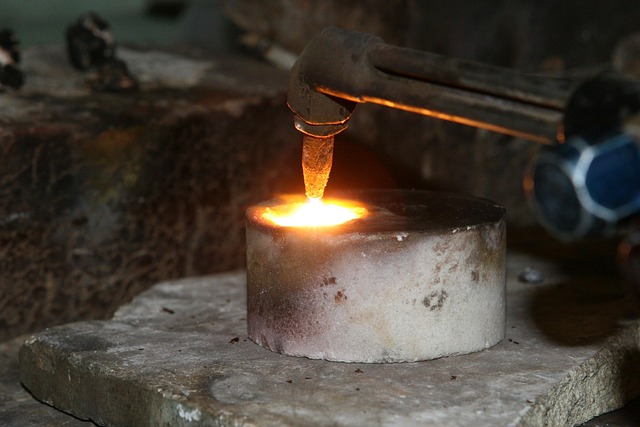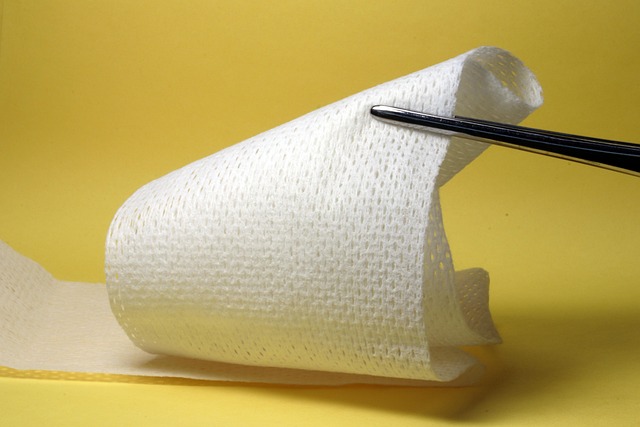Stem cell culture media is a vital tool for harnessing stem cells' potential in medicine. By customizing components to provide optimal nutrients and growth factors, researchers can control cell proliferation, differentiation, and pluripotency. This ensures purity, reduces contamination, and facilitates large-scale expansion while preserving cellular health. Advanced media formulations support diverse stem cell types, driving breakthroughs in tissue regeneration and personalized therapies. Ethical considerations require defining and robust media solutions to balance scientific progress and address concerns around animal-derived components.
“Stem cells, with their remarkable ability to differentiate into various cell types, hold immense potential in healthcare. This article explores the versatile applications of stem cell culture media, a critical component unlocking their full potential. From regenerative medicine to personalized treatments, we delve into how specialized media influences stem cell function. We examine cutting-edge research, ethical considerations, and the future prospects of this dynamic field, where stem cell culture media plays a pivotal role in shaping innovative therapies.”
- Unlocking Potential: Stem Cell Culture Media's Role
- Diverse Therapies: From Regeneration to Repair
- Customized Treatments: Media's Impact on Stem Cells
- Research Frontiers: Exploring New Applications
- Ethical Considerations: Navigating Stem Cell Culture
Unlocking Potential: Stem Cell Culture Media's Role

Stem cell culture media plays a pivotal role in unlocking the immense potential of these versatile cells. It provides the essential nutrients, growth factors, and supportive environment needed for stem cell proliferation, differentiation, and maintenance. By carefully formulating and optimizing culture media, researchers can tailor it to specific stem cell types and applications, whether for stem cell therapy media considerations, expansion, or cryopreservation.
The choice of media components is crucial. Serum-free and mitogen-free stem cell culture ensures purity and reduces unwanted activation or contamination, which is vital for maintaining stem cell pluripotency. Advanced media formulations can facilitate efficient stem cell expansion while preserving cellular integrity, ultimately enhancing the availability of these cells for therapeutic applications.
Diverse Therapies: From Regeneration to Repair

Stem cells have proven to be a versatile tool in medical science, offering a wide array of therapeutic potential. Their ability to regenerate and differentiate into various cell types makes them invaluable for treating a multitude of diseases. From regenerating damaged tissues to repairing organs, stem cells are revolutionizing healthcare.
One of the key aspects driving this versatility is the ability to tailor stem cell culture media to specific applications. Customized stem cell culture conditions allow researchers to optimize the microenvironment in which these cells thrive, ensuring they remain undifferentiated or promote specific differentiation pathways as required. Defined stem cell media components play a crucial role in maintaining the proper balance of nutrients, growth factors, and signaling molecules, enabling high-quality stem cell research and enhancing the development of effective therapies.
Customized Treatments: Media's Impact on Stem Cells

Stem cells hold immense promise in revolutionizing personalized medicine and treatments tailored to individual patients’ needs. One key aspect that enables this versatility is stem cell culture media, which provides the essential nutrients and growth factors required for their proliferation and differentiation. Customized treatments are made possible by manipulating the composition of culture media to meet specific requirements, ensuring optimal conditions for stem cell differentiation.
The quality control of stem cell research media is paramount as it directly impacts the success and consistency of long-term stem cell culture solutions. Advanced formulations cater to different types of stem cells, be it embryonic, induced pluripotent, or mesenchymal, offering a wide range of options for researchers to explore various therapeutic applications. By carefully tuning the media, scientists can guide stem cells down specific pathways, leading to breakthroughs in regenerating tissues and organs.
Research Frontiers: Exploring New Applications

The field of stem cell research is continually evolving, with scientists exploring new frontiers in an effort to unlock their full potential. One area of significant interest is the development of long-term stem cell culture solutions that can support robust and stable human embryonic stem cell (hESC) cultivation techniques. Researchers are meticulously crafting defined stem cell media components, tailoring them to meet the specific nutritional requirements of these versatile cells.
By optimizing stem cell culture media, scientists aim to enhance the efficiency and safety of hESC cultivation, paving the way for groundbreaking applications in regenerative medicine, personalized therapies, and disease modeling. These advancements hold immense promise for treating a wide range of conditions, from cardiovascular diseases to neurological disorders, by harnessing the remarkable capabilities of these undifferentiated cells.
Ethical Considerations: Navigating Stem Cell Culture

The ethical landscape surrounding stem cell research is complex and multifaceted, with a significant focus on navigating the challenges posed by stem cell culture. As scientists delve deeper into understanding and harnessing the potential of these versatile cells, ensuring the integrity and quality of their growth environments becomes paramount. Ethical considerations extend beyond the sourcing and use of cells; they encompass the very media in which these delicate cells are nurtured.
Stem cell maintenance media formulations must adhere to strict standards to support cellular viability and functionality over long-term stem cell culture solutions. The composition of this culture media, including essential nutrients, growth factors, and supplements, is crucial for maintaining the undifferentiated state of stem cells. Researchers strive to create optimal formulations that not only promote healthy cell growth but also minimize potential ethical dilemmas associated with animal-derived components or controversial additives. Balancing scientific progress with ethical stewardship demands continuous innovation in developing advanced, defined, and robust stem cell culture media.
Stem cell culture media plays a pivotal role in unlocking the vast potential of versatile stem cell applications, from regenerative therapies to customized treatments. As research frontiers continue to expand, understanding the impact of optimized media on stem cells is crucial for navigating ethical considerations and revolutionizing healthcare. By delving into innovative solutions, we can foster a brighter future where stem cell culture media empowers breakthroughs in treating previously incurable conditions.














